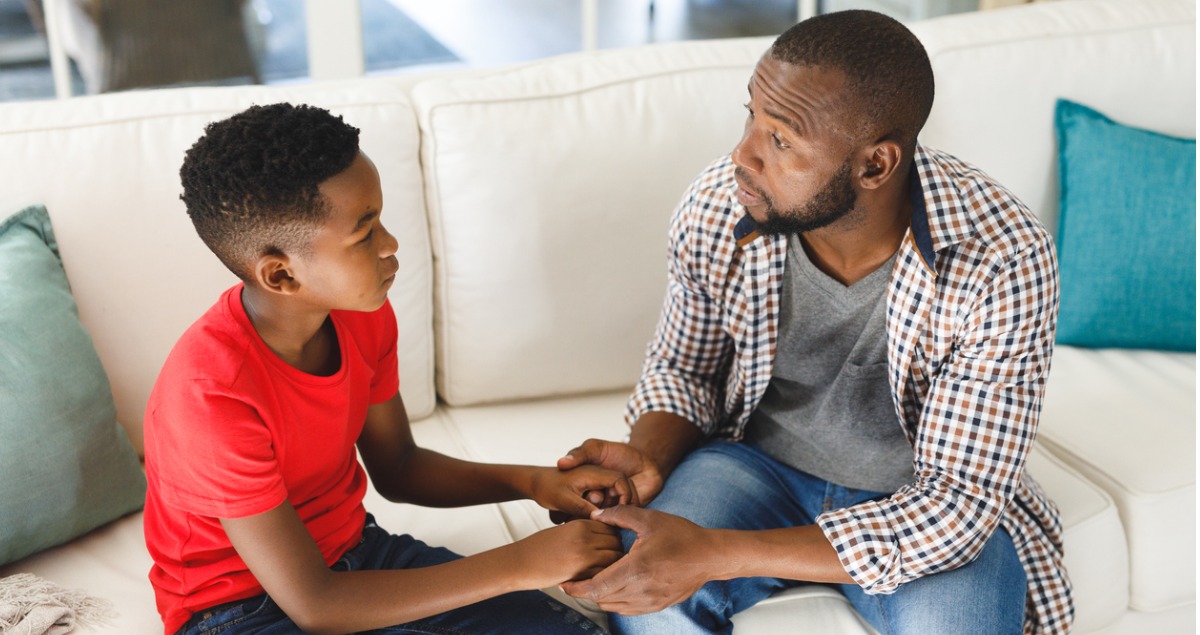We need to start changing the way we talk about COVID-19 to kids.
The highly infectious Omicron variant has led to high COVID-19 rates among kids and adults, regardless of vaccination status. A troubling social line has been drawn between those who have become infected with COVID-19 and those who have not, often with associations that infected individuals are to blame for contracting the virus because they were “not careful enough.”
This type of thinking – that the virus can be completely controlled as long as someone does not make “poor choices” – has unfortunately led to discrimination and bullying of kids who have had COVID-19.
We need to start changing the way we talk about COVID-19 to kids to encourage the support of others, reduce bullying, and help kids not feel shame or guilt if they become infected.
Be mindful of how people infected by COVID-19 are being depicted in the news and other social media.
News and social media tend to categorize people into groups, and make it all too easy to judge individuals with COVID-19 who weren’t vaccinated or don’t appear careful enough with masks or social distancing.
Talk with your child about how vaccinations and wearing masks are important, and at the same time, how sometimes careful people can still get COVID-19. All we can do is try our best to follow the guidelines.
An analogy that may be helpful is wearing a helmet while riding a bike. A helmet can prevent severe injuries from a fall, but as careful as you can be, sometimes you cannot prevent a fall.
In a developmentally appropriate way, ask your child what they know or think about others who have been infected.
Invite your child to share what they think about friends, family or people in the news who have tested positive for COVID-19. Acknowledge and validate their responses, so they feel heard. For example, “It sounds like you’re worried about your friend. I get why this is scary.”
If they share a negative judgment, like “It’s their own fault,” suggest a way to reframe their thoughts. For example, “There’s no way of knowing how they became sick. It’s more important that we wish them well and hope that they feel better soon.”
Be more aware of your own thoughts and beliefs, and how you may be communicating them.
Do you automatically try to search for the reason that someone contracted COVID-19, maybe with the idea that they weren’t careful enough or made poor choices? If so, your child will likely pick up on these cues and do the same thing.
Work on role modeling a better approach for your child. When you learn that a family member, friend, or someone at your child’s school has tested positive for COVID-19, avoid attempting to explain the reason they’re sick. Focus on offering a supportive response, either wishing them well or sending them food.

